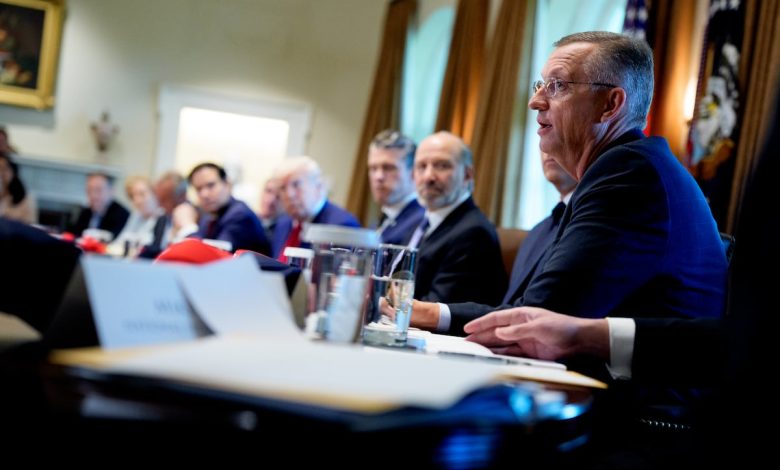Collins, Dems spar over whether VA needs key fixes or full overhaul

Both Republicans and Democrats agree that the Department of Veterans Affairs is not perfect. On Tuesday, the two sides fought over just how not perfect it is.
In testimony before a Senate oversight committee, Veterans Affairs Secretary Doug Collins portrayed his department as a bureaucracy in severe disarray when he took over three months ago. But he insisted reforms from the new administration since then have set operations on the right track.
“Our shared goal needs to be making things better for veterans rather than protecting the department’s broken bureaucracy,” he told members of the Senate Veterans’ Affairs Committee. “To simply say that where we came in was okay, everyone knows that was just simply not true.”
In contrast, Senate Democrats accused President Donald Trump’s administration of working to dismantle the department rather than improve it, accusing Collins of exaggerating and fabricating problems to justify dramatic changes in coming months.
“You cannot slash and trash the VA without eliminating essential positions which provide access and availability of health care,” said Sen. Richard Blumenthal, D-Conn., ranking member of the committee. “It simply cannot be done. You may give us a lot of verbiage here, but you’re not giving us facts.”
RELATED
Collins’ appearance on Capitol Hill was his first since his confirmation in February. It came amid increased criticism from veterans advocates and federal unions over Collins’ public plans to trim as many as 80,000 staffers from the 480,000-plus department workforce.
The hearing quickly became a contentious affair, with several shouting matches between Collins and Democratic critics of his policies.
Collins has said the staff cuts are needed to cut down on the “bloated” VA bureaucracy. Department staffing levels grew roughly 20% from the start of fiscal 2019 to the end of fiscal 2024, but Collins asserted problems like medical wait times and benefits backlogs have grown worse over that timeframe.
“Something has to change, and it’s up to us to make that change,” he said. “Under President Trump, we are working to solve problems that have persisted at VA for decades.”
But Democratic lawmakers disputed several of those points. Blumenthal noted that claims backlogs increased after a massive expansion of veterans benefits in 2022, and that wait times increased after significant changes to operations caused by the COVID-19 pandemic.
Other lawmakers urged Collins to back away from planned staff dismissals without a clear idea of how those reductions will affect programs.
On Tuesday, Collins said he sees the 15% workforce reduction as a goal — “it could be more, it could be less” — but bristled at suggestions that he would make any moves that could harm veterans care.
He insisted that no physicians or front-line workers have been fired so far and vowed that critical workers won’t be dismissed later.
Democratic lawmakers countered that losing schedulers, support staff and other key personnel will harm veterans seeking care.
“You’re claiming that these 80,000 are all [diversity employees] and interior designers,” said Sen. Elissa Slotkin, D-Mich. “There’s no way that all of them are in those job fields.”
They characterized VA as an agency in need of improvement, not a complete overhaul. President Joe Biden’s administration also pushed that message late last year, noting an approval rating of more than 80% for veterans using the system.
But Republican lawmakers echoed Collins’ view of a Veterans Affairs department in desperate need of overhaul.
“The VA is not working for veterans,” said Sen. Thom Tillis, R-N.C. “And if we just say, ‘Everything has to say the same and you just have to add more money and more people,’ you’re looking at this the wrong way.”
The conflict over the state of VA — and the level of changes it needs to make to prepare for the future — is expected to be on full display as lawmakers debate the department’s fiscal 2026 budget in coming months.
The White House has already proposed a 4% increase in veterans programmatic funding for next fiscal year, even with the proposed staff and contract cuts on the horizon.
Leo covers Congress, Veterans Affairs and the White House for Military Times. He has covered Washington, D.C. since 2004, focusing on military personnel and veterans policies. His work has earned numerous honors, including a 2009 Polk award, a 2010 National Headliner Award, the IAVA Leadership in Journalism award and the VFW News Media award.
Read the full article here









